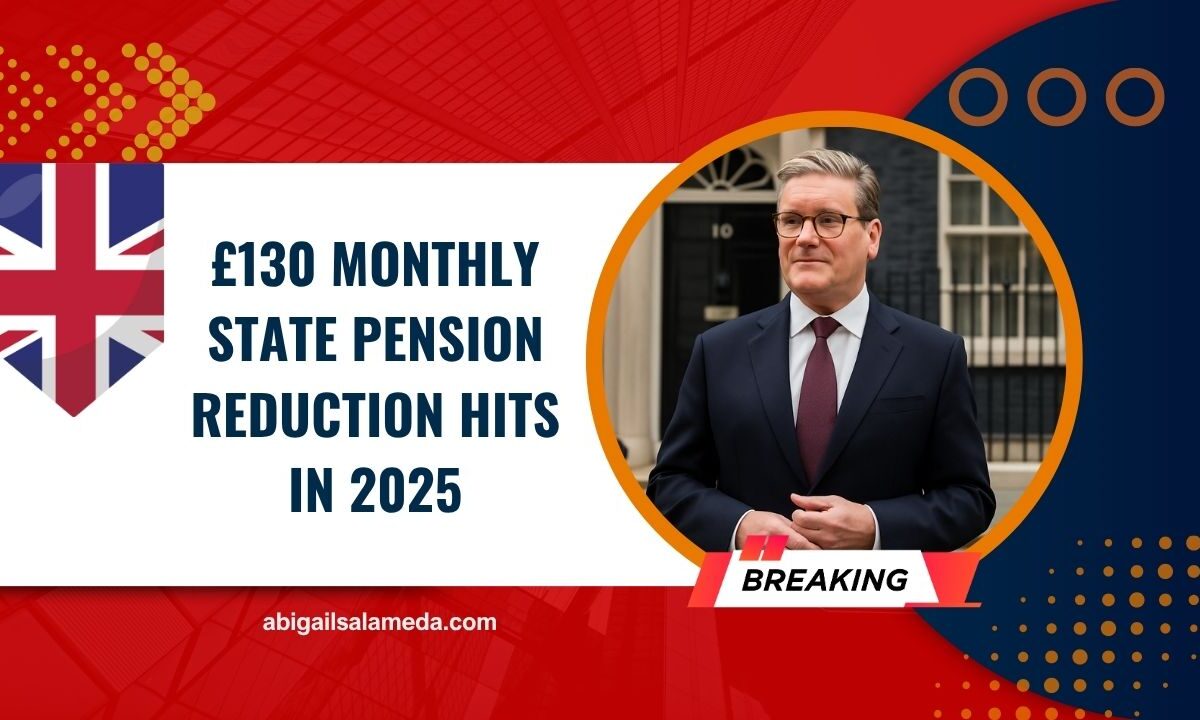In 2025, thousands of UK pensioners are experiencing an unexpected £130 monthly reduction in their pension income—not due to any cuts in State Pension rates, but because of HMRC’s updated tax code adjustments. Here’s how it works, who is affected, and what you need to know.
What’s Happening?
- State Pension remains unchanged and continues to increase in April 2025 by 4.1% under the triple-lock (now £230.25/week or £11,973/year for new State Pension)
- The £130/month cut stems from how HMRC reclaims unpaid tax on other income sources using adjusted PAYE tax codes
- Only pensioners with additional taxable income are impacted—State Pension itself is taxable but not taxed at source
Key Details
| Topic | Details |
|---|---|
| Monthly deduction amount | Up to £130/month |
| Underlying cause | HMRC tax code adjustments to recover unpaid tax |
| Who’s affected | Pensioners with total income over £12,570/year and extra income streams |
| State Pension tax status | Taxable, but no tax deducted at source |
| Collection method | Adjusted PAYE tax code across other income sources |
| How to check | Via HMRC online personal tax account |
| Can it be avoided? | No, but proper management and review can reduce surprises |
Who Is Most Affected?
This reduction applies primarily to pensioners who:
- Receive private or workplace pensions
- Have rental income, investment returns, or part‑time work
- Recently started claiming their State Pension
- Operate with an outdated or emergency tax code
- Have annual income exceeding £12,570
How HMRC’s Tax Code Adjustment Works
HMRC leverages the PAYE system to spread previously underpaid tax over future months. Instead of sending a lump‑sum tax bill, the agency revises your tax code so private pensions or earnings cover the owed amount.
Example Scenario:
- Underpaid tax from previous year: £1,560 → Deduction: ~£130/month
- Tax code adjusted mid‑year → Deductions spread over remaining months
- Income above £12,570 → More of your income taxed via PAYE
- Overlap of pension incomes or new claims → Miscalculation triggers adjustments
- Outdated tax code → Greater chance of unexpected deductions
Tax Treatment by Income Source
| Income Type | Tax Treatment |
|---|---|
| State Pension | Taxable, no tax collected at source |
| Private/Occupational Pension | Taxed via PAYE, subject to tax code adjustments |
| Employment Income | Taxed under PAYE or via Self‑Assessment |
| Rental Income | Declared and taxed using Self‑Assessment |
| Investment Income | May be taxed at source or included in Self‑Assessment |
How to Check If You’re Affected
- Log in to your HMRC Personal Tax Account
- Review your current tax code, including which income sources it applies to
- Inspect pension payslips or bank statements for abnormal deductions
- Use HMRC’s tax calculator to estimate your liability
- Contact HMRC if you notice incorrect deductions or suspect an error
The £130/month reduction in 2025 is not a cut to the State Pension itself, but a tax recovery mechanism via HMRC’s PAYE adjustments. Pensioners with additional taxable income and who earn over £12,570/year are most at risk.
By reviewing your tax code, income sources, and staying in touch with HMRC, you can reduce surprises and manage your finances more effectively.
FAQs
Will all pensioners see the £130 cut?
No. Only those with additional income besides the State Pension and earning above the £12,570 personal allowance are impacted.
Can I dispute a tax code change causing the deduction?
Yes. If you believe your tax code is incorrect, contact HMRC directly to request a review. If the tax is owed, the deduction may still apply correctly.
Is the State Pension rate actually being reduced?
No. The State Pension rate remains intact. The deduction affects other income sources used to collect withheld tax.




